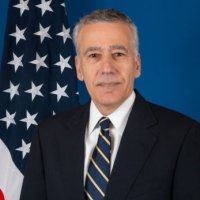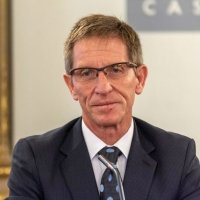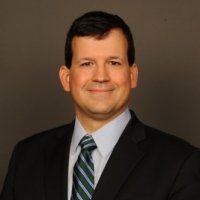The United States-Colombia Growth Initiative: A New Phase in Bilateral Relations?
In a visit to Bogotá last August, U.S. National Security Advisor Robert O’Brien, Director of the International Development Finance Corporation (DFC) Adam Boehler, and other senior U.S. officials joined Colombian President Iván Duque in announcing a new “United States-Colombia Growth Initiative” (Colombia Crece). The goal, said O’Brien, is to “ensure Colombia’s growth in the 21st century, the rule of law, security, infrastructure, rural development and also democracy.”
For his part, President Duque underscored the need to “mobilize strategic investment to the neediest areas of our country…to reach those municipalities that need tertiary roads, water and sanitation, electrification, education and sources for generating legal income.”
What are the central features of what DFC Director Boehler described as a “new Plan Colombia…taking aid to the next level?” Though details have not yet been announced, the development of rural areas, including through mobilizing investments by the private sector, is a key focus. Is there a security environment sufficient to attract rural investment? What legal and/or regulatory reforms might be needed? How can the U.S. and Colombian governments and private sectors mobilize together on behalf of a rural development strategy?
Selected Quotes
Ambassador Goldberg
(05:13) Colombia has made remarkable progress. [...] Plan Colombia was envisioned as a binational, whole-of-government approach to address the continued violence and lawlessness wrought by insurgents and the narco-trafficking that funded their operations. Through an integrated approach, focused on security systems, rural development, and rule of law, the Colombian government and people ended the Western Hemisphere’s longest running conflict. It came in two parts—first, with agreements with paramilitary groups, and then with the agreement of 2016 with the FARC.
(06:20) Colombia’s commitment and resolve and dramatically improved security and rule of law and brought insurgent groups to the negotiating table.
(07:43) Thanks to the peace accord, Colombia is able to broaden its focus on security to make more progress on economic development and rule of law. The U.S-Colombia Growth Initiative accelerates and expands this trajectory, this ability to do more on economic development and rule of law, harnessing the private sector to reverse decades of isolation in vulnerable rural communities. The 2016 accord opened new opportunities for investment and state presence in areas formally unreachable during the conflict and historically forgotten.
(09:33) We estimate that the value of Embassy programming integrated across counter-narcotics development and security in support of this program at over $1.2 billion in the first 3 years of the initiative. We will work hand-and hand with our partners to sustainably eradicate coca, increase citizen security, create licit jobs, and foster integrated rural development in the targeted areas.
(11:17) We have a strong base to build on. Over the past several years, our supporters developed licit economies and value chains in rural, conflict-affected communities. We’ve helped licit producers increase their sales by a total of over $40 million in the past five years. We’ve also helped build over 3,000 kilometers of tertiary roads since 2014, benefiting over 223,000 rural residents to ensure cacao, coffee, fruit, milk, cheese, and rubber reach their intended markets.
(12:11) We’ve helped the Colombian government to deliver over 3,300 land titles to rural conflict-affected families since 2014.
(12:38) Colombian social leaders and human rights defenders play an essential role in rural development, and we focused on that as well—getting people away from illicit economies to licit ones, promoting ethnic inclusion, labor rights, and state presence.
(13:22) We know that achieving lasting peace and economic development in Colombia’s rural areas requires greater police presence, to provide citizen security and establish the rule of law. We are helping nearly 15,000 rural communities use alternative methods to resolve over 4,400 disputes. We are working with the Colombian National Police to expand permanent rural presence by building rural police bases in strategic areas plagued by narco-trafficking and building trust with the communities they serve.
(14:33) We don’t ignore the difficult situations many regions of Colombia still face; violence and instability caused by illegal groups is still present. […] some of these groups that are still there are going to fight us as we try to introduce more of a state presence and more licit economics, because it’s not in their interest. Coca cultivation remains a key driver of the conflict, and we continue to work on that very strongly with the Colombian government and with the Defense Ministry, the police and the military.
(15:55) I would just say from personal experience that maybe 60 percent of the country, 20 years ago, was outside the government control. That may be now 15 percent of it.
(16:46) We want to be able to add to our basket of options to help Colombia as it moves along. It’s in the great interest of the United States, as it always has been. We have a tremendous investment here. It has always been bipartisan. The U.S Congress has helped us fund these programs from both sides of the aisle, and we’ll now have this DFC [Development Finance Corporation] program to help further those efforts.
Emilio Archila
(20:43) In what we are doing with development plans with territorial emphasis is that we have realized that it’s not just a matter of socio-economic equality or fairness with 6.6 million Colombians; it’s a matter of security for Colombia that we take the state presence to those far places and that we create the conditions so that the private investment is possible and profitable.
(21:36) We know now that we need to work with the people, and we know that we need to ask the people how is it that they want their own development.
(22:16) [With those lessons in mind,] we decided which were the areas of the country that were most affected by violence and poverty. In each one of those regions, we went to a territory. We spent 18 months asking the people, acre by acre, municipality by municipality, and at the regional level, what is it that they want, what is their expectations, how they want to see the development of their own territory. That ended up in the participation of more than 200,020 people. That means that 1 out of 8 households in those territories participated directly in the identification of their necessity. That is 22,000 requests.
(25:54) We have worked with all the international community, and particular with USAID, […] and we are focusing on doing exactly what the people ask for. Let me highlight some characteristics, first is doing what the people want, second is be a long-term planning, and the third is to decide what to do and what not to do.
(28:05) We have identified every single road that needs to be constructed for the region for the next 15 years. We have combined this with the identification of where the coca is being grown. In 120 out of 170 municipalities, we have more than 90 percent of the coca.
(28:43) We have developed [an]other three programs that are explicitly designed for the characteristics of the regions where the coca is being grown. […] We know exactly where the coca is, we know what substitution program we need to implement in each one of the places where the coca is being grown, we know what is the product that will be commercially sound in order to substitute the coca, and we know what is the economic infrastructure that we need to build in order to take those products out in a commercially competitive matter.
(30:29) Our program is a program that is comprehensive of: substitution, value added, commercial infrastructure, and roads.
María Claudia Lacouture:
(32:33) The U.S is the largest investor in Latin America. It has had more than 3,662 projects in the past decade. In Colombia, for the past 10 years, the U.S has been the largest source in projects and investments in our country, with more than 360 projects, and representing more than $22.9 million.
(33:35) One of the greatest opportunities that we have in Colombia is the rural area. The country is agribusiness, and its entire production chain has a lot of opportunities to offer to any investor that is coming to our country.
(34:14) The top three countries that are making this investment in our country [are] the United States with 35 percent, Chile with 10 percent, and Peru with 9 percent. The investment is occurring in more than 14 sub-sectors.
(35:00) The top three sectors with the highest participation in terms of investment in Colombia is related to agrobusiness, forestry, and poultry. Those three are making more than 80 percent of investment in the country since 2010.
(35:29) Some of these are part of the incentives, policies, and opportunities of what Colombia has been working since many years ago, more than 15 years that the country has been working to strengthen the relation between investors and the government, the policies, and developing new incentives in order to be attractive for everyone internationally.
(35:56) Some of the incentives that can be highlighted, in addition to what Emilio had just mentioned, is income exception to companies, income tax deduction, special economic social zones (ZOMAC)—which are the areas more affected by the conflict—with the reduction of payment of income tax until 2027, where Emilio explained a lot about how the investment can work in this area, and free trade zones where they would have an income of 20 percent and exception in that entirely.
(36:32) However, all this success we can say on a country that previously it was not an idea that we would be able to attract investment in certain areas of our country, which we have. We do have a working plan that is being developed between the different associations, the government, especially with [Sociedad de Agricultores] SAC, which is the association of agriculture in Colombia. Where we have been highlighting 13 cross-cutting issues that could stretch in the sector to become an agricultural reserve for the world. It will generate well-being and equity in Colombia and more importantly, it will maintain Colombians in rural areas.
(37:18) We have seen many Colombians moving from the rural areas to the main city, which has increased some of the problems of Colombia regarding security and several other issues. So this is one of the main of the most important issue that has to be tackled by the governor, by all of Colombia, and also by investors—how we can develop the areas where we have opportunity for the rural area in order to maintain our Colombians in those areas as well.
(37:52) Of these 13 matters, I believe there are four that are game changers. Let me start by legal stability. We have done a lot of work related to legal stability, but still, there is one that is related to the rural property which is needed to be advanced.
(38:12) The previous government has developed a law that was not passed through the Congress, and it should be approved by the Congress because it has four fundamental concepts that were not easy to achieve. The first one is, we had a prior consultation mechanism which is a very long mechanism that has to be done before any investor can get into a countryside depending on the type of land that is going to be used. If it is a land that is the property of the indigenous or in an area that has to have this consultation, in this law it already has been done. So that is one of the issues that should emphasize the need of allowing this law to pass to the Congress.
(39:05) The second one is to clarify the concept of expropriation, by establishing it as a residual mechanism, which means that the last thing that can be established is expropriation, which is very important for any investor that is coming to our country.
(39:21) The third one is the clarity of the extension of the domain right for non-exploitation. Today, as the law is established, if a property is not exploited, property rights can be extended. And considering that according to the Peace Agreement, the government has and must generate a land fund for its allocation these type of mechanisms, it seems as an opportunity to comply with the norm and provide a lot of question marks for the investor of how they can apply the mechanism in order to not be included in that type of non-exploitation, if they don’t use the land.
(40:03) Resolve land title issues, Ambassador Goldberg as well as Emilio thought about the land issue that is one of the main issues that is important to investors to have a confidence that the land that is going to be bought has the right legal titles. That’s another issue that was implied into the project that was not approved by the Congress, but it should again be passed through this process.
(40:39) The second main issue that should be tackled is the road, energy, and digital connectivity. Many of the lands that we have with great opportunity for many types of products to produce in our country are related to cities and areas where there is not enough roads, energy, and digital connectivity, allowing a not very interesting competitiveness for the investors that are coming to our country.
(41:15) The third one is the labor structure. We do have a labor structure that allows several opportunities for any investor. But, there are two issues that might be of importance that should be addressed in order to improve and have a huge amount of investment that we can have, because the opportunities are there. One is the flexibility of hiring to allow the companies that are working on the rural area, that are investing and are producing in areas where there is a hard way to get there as well as to provide development in certain areas where there is not development, to have flexibility in hiring. Also, different types of modalities of work, which allowed the companies to also have opportunity of how they can best employ someone in order to be productive in those areas.
(42:15) The fourth and last is strengthening business competitiveness and network. There is a huge need in Colombia to increase the knowledge from the companies and the entrepreneur that we have in our country. From a business point of view, and working with the different works that is being developed with the government, because this is something that is under development with the Ministry of Commerce, we have worked a lot in improving those areas, the following can be highlighted: Look at Colombia for its potential and with a minimum investment ticket.
(42:53) Sometimes investors are looking for opportunities with a ticket of more than $5 million, where in Colombia there is a very few number of companies that can accomplish this amount. So, one of the issues that we are working on with every investor that is interested in our country is to explain a little bit about the culture and the development of the companies in Colombia—how they are conformed and the opportunities that can be accomplished through an investment in our country.
(43:32) In most cases, investors are looking for vertical integration companies, and in Colombia there is a limited number of those. Many companies from different sectors are concentrated on the domestic market, not on export. We are not an exporting country, however we have increased the number of exports related to agribusiness and agriculture products. Also, we have increased the number of trade agreements, with more than 13 trade agreements in the past 10 years, allowing any investor that is located in Colombia to be part of a more broadened consumer through this trade agreement. And the structure of the companies are very familiar companies. More than 90% of the companies in Colombia are still owned by private companies, by a family, which means that there is a process that has to be done through improving the opportunity of alliance joint venture and so forth in order to be part of this opportunity that the country has offered.
Dan Restrepo:
(48:09) We need to make sure that this administration, and any that may come after it, ensure that we are listening to the people that actually know the problems and are respectful of their views.
(50:55) We need to make sure that in this moment, the U.S is working hand-in-hand with our Colombian partners, guided by our Colombian partners, to ensure that we are doing our part […] to help solve what has been the unsolvable problem for all of Colombia’s history.
QUESTIONS & ANSWERS:
Relationship between the U.S and Colombia
Dan Restrepo:
(55:31) What [President Trump] is doing is problematic. One of the nice things and one of the healthiest things about the U.S-Colombia relationships over the course of the past 20 years […] it has been a source of great bipartisan cooperation. [Democrats and Republicans], they always ensure to understand the importance of Colombia, and the importance of Colombia for the United States and to treat it as such—to treat the relationships of something of strategic value and not something for petty bipartisan gain, and unfortunately, the President of the United States has departed from that convention.
(56:50) This relationship is important. This relationship should not be politicized. These relationships should not be politicized by Americans and should not be politicized by Colombians.
Ambassador Goldberg:
(57:56) The bipartisan nature of our relationship with Colombia is hugely important for sustaining the kind of support in Congress, in the rest of the community of people who are interested in this relationship, so that we have the resources to do the kind of things that we are talking about today. It’s in the U.S interest and it’s in Colombia’s interest.
Visit of Secretary Pompeo to Colombia and Coca Eradication
Ambassador Goldberg:
(1:03:09) It’s an ambitious target, and one that we set actually at the end of the Santos government, that this was going to be that goal that was reiterated early and the Duque administration.
(1:03:25) The goal for this year is 130,000 hectares of eradication.
(1:03:52) There were three ways we want about the deep reduction of coca production and interdictions from 2002 to 2012 when we were doing Plan Colombia. One was manual eradication, there was aerial eradication, and there was a very strong effort at going after certain groups that were more identifiable—targetable, if you will, it’s not a very nice term to use—at least from our perspective in terms of the counter narcotics and to some extent the counterterrorism effort.
(1:04:38) Right now we don’t have the aerial at our disposal and we don’t have the same sort of structure in the countryside that are against these efforts.
(1:04:55) So it’s a different situation. That is in part why we’re adding or emphasizing the kinds of programs and policies that Emilio Archila was talking about through the cadets, through the Zonas Futuro, to add additional tools and as Dan mentioned, to our ability to deal with these issues.
(1:05:20) It’s a very ambitious target and we are on the way this year to carrying out what we committed to carry out, what the Colombian government committed to carrying out, and we’ll go from there.
(1:05:35) We hope at some point to have additional eradication tools also such as aerial to use. It’ll be done in a much more limited way probably than before because of court decisions and environmental and other issues that are involved here in Colombia, but we will continue to try to meet those targets.
Chinese Investment in Colombia
Ambassador Goldberg:
(1:06:45) Clearly, China has been making more efforts here in Colombia than it has in the past. Colombia has not been a central focus of Chinese efforts and investment.
(1:07:17) Our strategic relationship is such that America is the preferred partner in business, economics, as well as in the kinds of military and development programs that we partner on.
(1:07:42) What we’re most concerned about is development when it happens of a 5G program, and we have made it clear that those are national security concerns, not just economic concerns for the US. If we are partners and strategic partners and we work together as militaries and in intelligence cooperation, it’s all the more necessary to have secure networks.
(1:08:22) We are also competing in other areas […] we are still by far the largest foreign investor here. We want to keep it that way. One area that we don’t compete well, quite frankly, because we don’t have companies as interested, is the infrastructure. And there, the Chinese have been active here[C1] .
(1:08:38) Of course investment decisions are made on a different basis by US companies than some of the Chinese companies that will tell you that they are private but when in fact they are backed by the Chinese government.
Agreement with the FARC
Emilio Archila:
(01:11:56) I think it is relevant to have a broader picture of what has happened after the signing of agreement with the FARC. If we have a look at that, not only from the view of indigenous people but also from the eyes of all Colombians, the bottom line is that we have a much better country than we did five years [ago].
(01:14:35) When Colombia signs the agreement with the FARC, we were aware that the FARC was not the only source of crime in Colombia […] so we made the decision of implementing the agreement knowing that we needed to face these other kinds of violence. The conditions have been getting a little more difficult due to the existence of Maduro’s dictatorship in Venezuela. The fact that Maduro hosts all these groups and enable them to hide in Venezuela makes things more difficult.
Speakers




Moderator

Hosted By

Latin America Program
The Wilson Center’s prestigious Latin America Program provides non-partisan expertise to a broad community of decision makers in the United States and Latin America on critical policy issues facing the Hemisphere. The Program provides insightful and actionable research for policymakers, private sector leaders, journalists, and public intellectuals in the United States and Latin America. To bridge the gap between scholarship and policy action, it fosters new inquiry, sponsors high-level public and private meetings among multiple stakeholders, and explores policy options to improve outcomes for citizens throughout the Americas. Drawing on the Wilson Center’s strength as the nation’s key non-partisan policy forum, the Program serves as a trusted source of analysis and a vital point of contact between the worlds of scholarship and action. Read more
